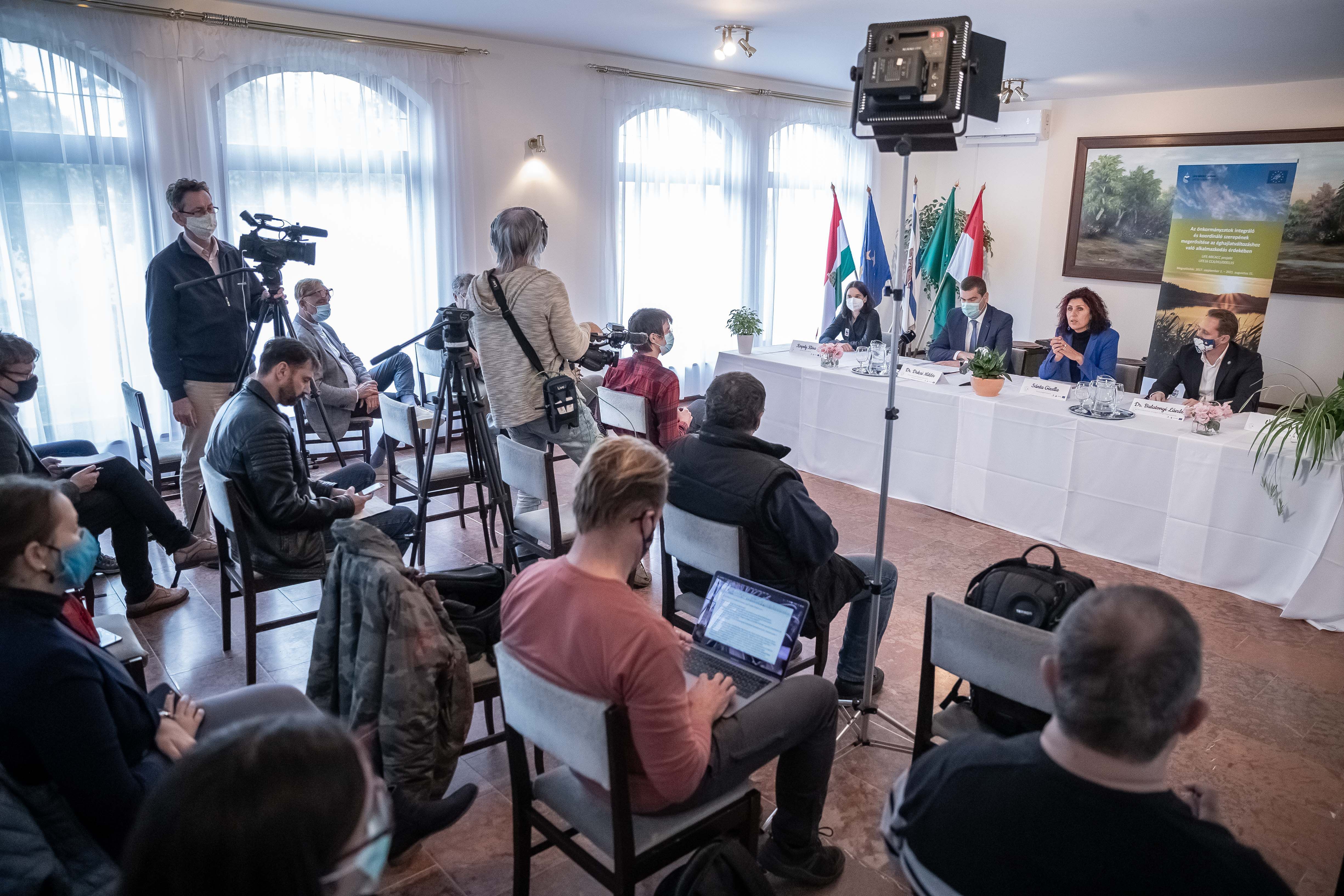LIFE-MICACC project
LIFE16 CCA/HU/000115
"Municipalities as integrators and coordinators
in adaptation to climate change"
LIFE-MICACC project
LIFE16 CCA/HU/000115
"Municipalities as integrators and coordinators
in adaptation to climate change"

The last press trip within the framework of the LIFE-MICACC project took place at Ruzsa, on 13th October 2020. The participants were welcomed by Gizella Sánta, Mayor of Ruzsa, followed by a speech from Dr. Miklós Dukai, Deputy State Secretary for Municipal Affairs (Ministry of Interior), Klára Kerpely, Climate Change Expert (WWF Hungary) and Dr. László Balatonyi, Head of Department (General Directorate for Water Management), Vass Tibor representing the local farmers and Iván Balla, the technical designer of the natural water retention measures completed in Ruzsa. After the speeches journalist could ask questions from the speakers, than the participants had the opportunity to take a closer look at the completed natural water retention measures in Ruzsa.
Ruzsa is located at the driest part of Hungary, on the Sand-Ridge between the Danube and the Tisza rivers, which is also referred to as the Hungarian desert. Because of decades of water scarcity, the territory is endangered by desertification. Ruzsa is characterized by strong water leakage, the settlement’s water retention capacity is quite low, resulting in a highly exposed state to the negative effects of climate change. Within the framework of the LIFE-MICACC project an two lakes were created (one within the borders of the municipality, and one outside of it) and a channel system its must needed rehabilitation. The aim of the settlement is to keep the gray water and the water from rain and wastewater treatment plants in Ruzsa, in and out of borders. There is no example of groundwater replenishment based on gray water retention in Hungary, despite the fact that current wastewater and drinking water treatment technologies generate the adequate quality of wastewater to work with. The reservoirs created within the framework of the LIFE-MICACC projects preserves water resources for drier periods by infiltrating water into the ground and will improve the microclimate by evaporating, watering the plants and moderating the effects of climate change.
Several national, regional and local medium showed up and recorded interviews, videos and podcasts about the press conference and the pilot sites. We hope that the pilot project completed in Ruzsa will serve as an example for all settlements and they will also implement similar natural water retention measures.
You can find several photos from the press trip in the Gallery: https://vizmegtartomegoldasok.bm.hu/en/gallery/image/63